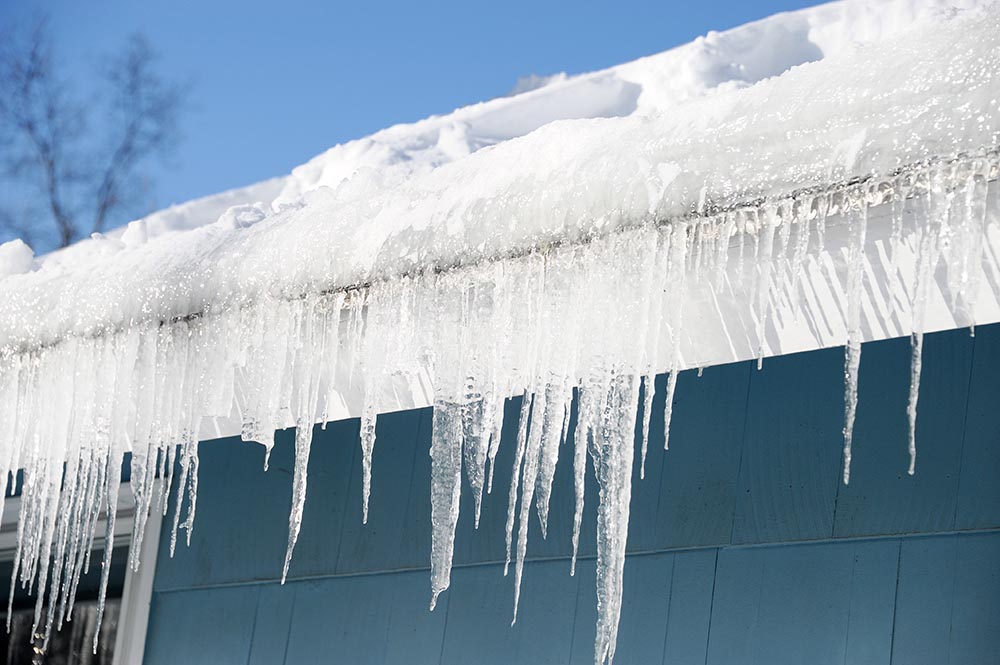Climbing up on a ladder to clean your gutters may not be your favorite task, but it is necessary to avoid a potentially hazardous situation. It’s especially important during the winter season when accumulated debris can freeze and prevent your gutters from draining properly. To avoid having a major problem on your hands, you should remove debris from your gutters “before” it has a chance to freeze and cause damage. Otherwise, frozen debris in your system can become heavy, causing your gutters to loosen over time.
Gutters that are not secure may eventually fall off of the home entirely, taking the trim down along with them. If this happens, you better believe that you’ve got an even bigger issue to contend with!
A damaged gutter system leaves the wood behind your gutter exposed to the elements. Over time, the wind, cold, and wet weather conditions can cause this wood to deteriorate, leaving your attic susceptible to freezing temperatures and critters looking for a warm shelter.
What Causes My Gutters to Freeze During Winter?
When your gutters are clogged, water cannot flow freely and drain properly through your downspouts. This presence of backlogged water is typically the result of debris such as leaves, twigs, acorns, bird’s nests, and other foreign objects in your system.
As a result, water may fill up your gutter trough and overflow. If it’s cold enough outside, ice sickles will form on your gutters. As more and more water continues to drain from your roof, ice continues to accumulate, getting larger in size and heavier in weight.
Problems from Snow
As snow accumulates on the surface of your roof, it tends to melt down into your gutters during the day when it’s warmer, and re-freezes inside of your gutters at night when the temperature drops again. This cycle can also contribute to the ice issue we mentioned earlier.
Insufficient attic insulation and poor ventilation are the most common reasons for ice forming on the roof. Cleaning gutters before they freeze can help you avoid property damage and costly repairs.
Gutter Damage
The weight from ice that has accumulated can cause your gutters to become loose, sag, break, or leak. Eventually, ice build-up can cause your gutters to fall off and damage the fascia board in the process.
Roof Damage
Your roof can become damaged by frozen gutters. The constant freezing and thawing of water in the winter creates the presence of ice that causes your shingles to shift. This allows water to seep through which often results in structural damage.
Structural Damage
Your attic can experience leaks as a result of damage from frozen gutters and downspouts. This moisture may cause further damage to your ceilings, walls, insulation, carpets, furniture, and more. The water can cause also cause cracks in your drywall, weaken your home’s foundation, and lead to mold and insect infestations.
How to Avoid Frozen Gutters
The best way to prevent frozen gutters is to keep them free of debris, especially during the winter season. Routine gutter cleaning and maintenance will keep your gutters from becoming clogged and damaging your roofing system.
Proper insulation and ventilation through your home (especially in the attic) can also help keep ice from forming on your roof and in gutters.
For an added layer of protection, gutter covers can help you avoid frozen gutters by keeping debris out and decreasing the chance of ice formation.
For professional gutter installation in Kansas City, contact Smart Exteriors today.

